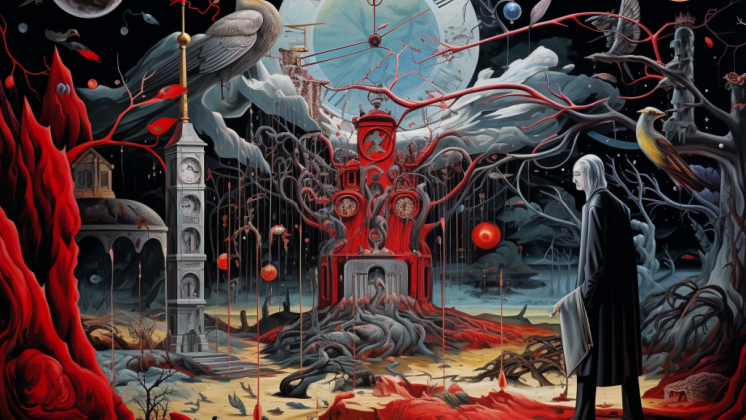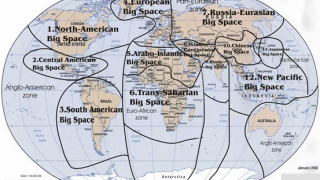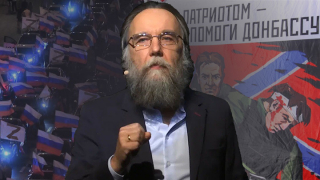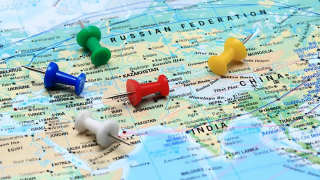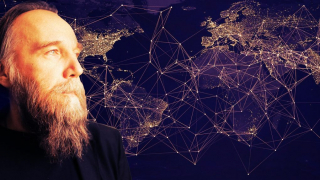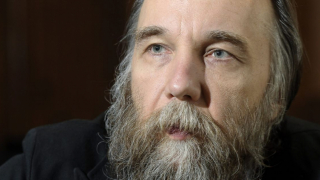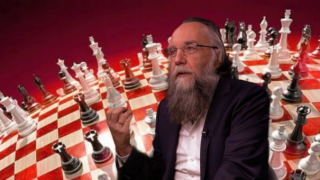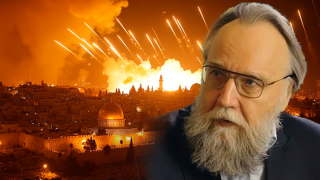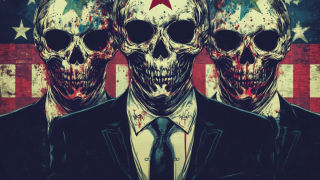Hegel and the Theory of International Relations
The General Paradigm of the Hegelian System
Let us trace the influence of Hegel’s philosophy on the theory of international relations. This is most evident in Marxism and liberalism, while Hegel had little impact on realism. Let us examine this topic in more detail.
Hegel expressed his views on politics most fully in The Philosophy of Right. These views are based on his philosophy as a whole and are an integral part of the entire system. Nonetheless, Hegel’s theory of the Political is quite originally laid out, and to identify his set of views on international politics, it should be briefly described.
First of all, it is worth recalling the general paradigm of Hegelian thought. It is built on the triadic principle formulated by Fichte: thesis — antithesis — synthesis. Fichte, in turn, derived it from the Neoplatonic tradition. Hegel himself did not use the expression ‘thesis — antithesis — synthesis’, although the structure of his dialectics constantly revolves around a similar triadic scheme.
According to Hegel, at the beginning of everything stands the Idea-in-itself or the subjective Spirit. This is the main thesis. Then comes the moment of negation. Thus, the Spirit negates itself, alienates itself, and becomes Nature. In this moment of negation, the Spirit ceases to be in-itself and becomes for-the-Other. But Nature and substance are not the first principle. It is just a moment of negation. Therefore, it is negative. Being negative, it indicates what it negates, by sublation, which simultaneously involves cancelling and elevating (Aufhebung). This tension between the two dialectical moments acts as the Spirit, organising and moving nature. There is a ‘potentiation’ of layers of external existence — from the physical-mechanical to the chemical, and finally, to the organic. This process of the unfolding of the Spirit is intellect. In humans, the intellect determines consciousness.
Organic life combined with human consciousness determines the third moment —negation of negation or synthesis. In humans, the Spirit enters its final turn, moving towards allowing the Idea to contemplate itself through humans, and the Spirit would become the Absolute Spirit, that is, the Idea-for-itself.
This is the general picture of Hegel’s system. In The Philosophy of Right, he focuses only on the human and the moments of their ‘potentiation’, the dialectics of movement through various layers of the self-revealing Spirit.
Hegel's Thought Structure in The Philosophy of Right
Hegel starts with abstract right — a purely juridical approach that establishes the person (in the legal sense), i.e., the individual. Common law regulates the relationships between the individual and other individuals and objects in the surrounding world. This postulates the Cartesian model of the subject-object relationship. At this stage, right, according to Hegel, possesses its ontology and predetermines the operation of ‘ordinary consciousness’. Right, as such, is pure triviality dealing with abstractions. It constitutes intuitive maps of everyday behaviour and experience but has zero content from a philosophical standpoint. Thus, laws precede the state and the Political as such. This can be seen in the analysis of archaic societies. But for Hegel, it is important to recognize this domain primarily at the conceptual level. Legal relationships are the basic abstraction structuring human relations with the surrounding world at the level of direct experience. Right, in a purely juridical sense, is the bottom of human existence, its outer boundary.
Here Hegel deals with Roman law and the European tradition of interpreting law in what Carl Schmitt would later call ‘nomocracy’.
The second level, where the autonomous subject first emerges, i.e., the Spirit begins its work, is, according to Hegel, morality (die Moralität). Here, he turns to Kant’s practical reason. Hegel explains the transition from right to morality as the human acquisition of the first degree of self-reflection, the conquest of autonomy relative to the strict distribution of roles and statuses in the previous logically juridical field. The moral subject does not coincide with the legal (physical) person, i.e., it is someone greater than the individual. The system of relationships with other individuals and objects in the external world becomes more complex. But Hegel treats such a moral personality as a moment of departure from the social bonds, strictly defined in law, into the zone of interiority, i.e., immersion into oneself, into self-reflection. This is a gesture in the spirit of the cynic Diogenes, a sceptic who distances himself from society in the name of personal contemplation.
Only at the next, third level does a person enter the domain of the Political, where the fully fledged work of what Hegel calls ‘Spirit’ (Geist), which is the mainstay of all his teaching, begins. Here, Hegel entirely follows Aristotle. Hence the choice of term — the third domain Hegel calls ‘ethical life’ (die Sittlichkeit), corresponding to Aristotle’s concept of ethics (ἠθική, ἦθος). Hegel fundamentally distinguishes the often-interchangeable concepts of ‘morality’ and ‘ethics’. Usually, Hegelians follow his lead. Morality is the individual’s immersion into themselves, the first ability to separate one’s presence from the purely juridical abstraction of oneself as a person. In ethical life, however, a person enters into an active practical form of life, already reflected and having conquered moral subjectivity, but this time decisively turned towards allowing the higher spirit to realize itself through conscious ethical action. This is the moment of society’s birth.
We move to the third level through the steps of right — morality — ethical life (society).
Here again arises a tripartite division. The entire domain of ethical life is divided by Hegel into three moments: family — civil society — state. This is a precise continuation and development of Aristotle’s thought about ethics. According to Aristotle, politics is part of the sphere of ethics because it deals with the question of what ought to be, i.e., deontology.
Being-in-the-Family and Its Negation in Civil Society
The first moment is the realisation by the individual of himself as a family. Here, for the first time, the moral subject expresses his will through concrete actions — sacrificing the individual to the family as the first community. According to Hegel, the family is a purely spiritual phenomenon. There is almost nothing bodily in it — it is the concreteness of ethical life (Sittlichkeit). In the family, a person fully asserts himself as spirit — as a substantial and concrete idea. The consciousness and will of the subject unfold within the family.
Society consists of families as organic wholes, where each individual resides in moral unity with other members. There are neither purely legal relationships (individual with individual or subject with object) nor the remoteness of the moral subject here. Being-in-the-family is self-overcoming and the transition from abstract humanity to the concrete.
The next moment Hegel considers dialectically, as the exit from the family into the realm defined by the already existing multitude of families, forming civil society (bürgerliche Gesellschaft). Here occurs the alienation of the person from the organic wholeness of the family, and in this sense, it is a negative moment. Civil society subjects the integral organism of the family to negation. But unlike the right, from which everything started, civil society is built on the basis of the spiritual concrete acting subject, manifested in the family. Civil society, in Hegel’s interpretation, is a negative phenomenon, in which the Spirit seemingly retreats from its conquests in the family. This defines Hegel’s attitude towards the Enlightenment, which took civil society (i.e. capitalism — Bürger = bourgeois) as the main reference point. Civil society is a negation, an apparent fall of the Spirit, but it is necessary for the next dialectical turn. This turn is the overcoming of civil society in the state (der Staat).
The State as the Overcoming of Civil Society
The family — thesis, civil society — antithesis, the state (der Staat) — synthesis.
The state (der Staat) represents the highest and most refined manifestation of the Spirit. Within the state, individuals who have matured from being members of civil society to recognising themselves as morally responsible subjects — this development begins within the family structure — achieve a form of social independence, essentially becoming self-aware citizens. At this advanced stage, they engage in a process of self-transcendence by dedicating themselves to free and voluntary social service. This act of dedication is a form of self-sacrifice that goes beyond the personal sacrifices made within the family context. Here, individuals offer themselves up for a greater communal good, contributing to a collective that represents a more sophisticated and higher realisation of the Spirit. It is not just about familial ties anymore but serving a broader, more complex community that embodies the Spirit in a fuller, more comprehensive manner.
At the stage of the state, civil society (bürgerliche Gesellschaft) becomes the people (das Volk).
Heidegger, commenting on The Philosophy of Right, insightfully notes that the people (das Volk) corresponds to Dasein, and the state (der Staat) is Being (in the Heideggerian sense). — Staat als Seyn des Volkes.
The state (der Staat), according to Hegel, is the pinnacle of ethical life (Sittlichkeit). It embodies the highest horizon of the revelation of the Spirit. The state is pure Spirit, therefore it is rational and possesses will.
In turn, the highest concentration of the state is the monarch. Hegel was a constitutional monarchist. In the figure of the monarch, the dialectic of the Spirit reaches its culmination. All members of the state serve the monarch, and the monarch serves the Idea.
Finally, within the phase of the Spirit corresponding to the state, Hegel also identifies three moments. Again, thesis — antithesis — synthesis.
The state itself (der Staat) as a single organism here acts as the thesis, as a spiritual unit, in which it achieves its most complete revelation. But the state is not alone. It is one of several. This creates a system of international relations. This is again negation. The presence of another state limits the sovereignty of the first. Thus, the system of international relations in the chain of moments of the revelation of the Spirit is an expression of the negative.
This negative (antithesis) is finally sublated by the affirmation of the universal Idea, i.e., the philosophical empire (das Reich). Here history reaches its end. The Spirit, having passed through all its stages, reaches full and absolute revelation. If initially it was the Idea-in-itself, then through self-alienation in nature (antithesis) it became the Idea-for-the-Other, then precisely in the world empire (das Reich) it becomes the Idea-for-itself. But Idea (ἰδέα) is that which is seen. When there is no Other than the Idea itself, it cannot be seen. The Spirit, as such, is the process of the revelation of the Idea, when it constitutes the Other, and then the Other contemplates the Idea. But this Other is not totally Other; it is the Idea itself, only expressed through the Spirit, moving from subjective at first to objective, and then to absolute. The world empire (das Reich) is the completion of history as the history of the Spirit, i.e., something final and absolute.
This is the general picture of Hegel’s philosophical system.
The Application of the Hegelian Model to Political Ideologies of European Modernity
From a general overview of Hegel’s system, it becomes perfectly clear how it can be applied to certain political ideologies, primarily to communism and liberalism.
It is well known and requires no proof that Marx built his system on Hegel’s philosophy. Marx’s reconstruction of history, though introducing the factor of class into the basis of analysis, in general, completely repeats Hegel’s scenario. The only difference is that in Marx’s materialistic and class theory, which excludes the primacy of the idea-in-itself and starts the construction of its own system from the second member of the dialectical chain — from Nature, from the antithesis, ‘the end of history’ becomes not the world empire (das Reich) but an international classless society — communism.
However, Marx also precedes communism with a phase of capitalism, which must first become a global phenomenon. This was insisted upon by European Marxists, who denied the Bolshevik Revolution in Russia as an example of authentic Marxism, and later by Trotskyists, who broke with Stalin and, like European social democrats, condemned the USSR as a ‘perversion of Marxism’. Thus, a certain analogue of the world empire (das Reich) was envisaged in left Hegelianism as well, as a precursor to the world proletarian revolution, the construction of global capitalism.
This is how Hegel was interpreted by liberal theorists — Kojeve and Fukuyama. Naturally rejecting the Marxist revolution and the class approach, they believed that ‘the end of history’ would occur through the unification of humanity in a single global supra-state system. This would be the complete victory of capitalism and bourgeois internationalism. But unlike Marxists, they denied classes, believing that the middle class would gradually spread to all humanity, and equality would be achieved through evolutionary, not revolutionary, means. The planetary globalisation that Marxists assert before the world revolution, and liberals consider already the ‘end of history’ itself, corresponds, however, precisely to Hegel’s civil society, which he viewed as a dialectical moment preceding the emergence of the state. Thus, both liberals and Marxists qualitatively distort Hegel’s system by refusing to recognise in the Hegelian state the form of Spirit, qualitatively superior to civil society. According to Hegel, moral individuals, rooted in the family and recognising the negative moment of alienation in society, consisting of many families, should voluntarily (or more precisely under the influence of the spirit acting within them) overcome this phase and through the negation of negation, that is, through the negation (sublation) of civil society, transition to a constitutional monarchy. However, liberals remain at the level of the second dialectical moment — at civil society, overcoming the family (hence the gradual abolition of the family in Marxism and liberalism) but not overcoming the overcoming, that is, capitalism and bourgeois democracy. Thus, they remain in the realm preceding Hegel’s understanding of the state as such, that is, as a moment of the ascent of Spirit. Therefore, even orienting towards Hegel’s principle of ‘the end of history’, they skip the most essential moment of the entire Hegelian system — the state. Hegel insists that the monarchy does not precede civil society but follows it — at least the monarchy he speaks of in his system. Civil society historically cancels the old type of monarchy, which Hegel does not mention at all in the unfolding of Spirit in the realm of morality. But it is precisely before the philosophical monarchy, the state of Spirit, that it precedes.
From this, we can conclude that both liberal and Marxist interpretations of Hegel significantly deviate from his system in the realm of state and law, which means their interpretation of ‘the end of history’ seriously distorts Hegelian thought and does not include Hegelian ontology of the state in principle. And for Hegel himself, it is precisely from this ontology of the state (der Staat) as a moment of ascending Spirit that the meaning of ‘the end of history’ emerges. If we understand ‘the end of history’ as the internationalisation of civil society, including or excluding the class criterion of Marxism, we completely change the entire structure of Hegelian philosophy of history, never reaching that instance where the synthesis of the moral sphere occurs and a philosophical monarchy (not yet a world empire), the state of Spirit, is created.
Right Hegelians, such as Giovanni Gentile, were much closer to Hegel. They place the concept of the state precisely in the Hegelian context and see in it the sublation of civil society. Such a state was supposed to be post-bourgeois, post-capitalist.
Strangely enough, the Russian Bolsheviks also turned out to be close to Hegel, initially announcing the possibility of a proletarian revolution in one country, and then, under Stalin, about the construction of socialism also in one country. Thus, in the left version, there appeared the theory and practice of creating a post-bourgeois state, in which civil society was overcome. If we consider the system that emerged under Stalin as a spontaneous ‘monarchy’, it would quite correspond to Hegelian logic.
What is Hegel’s State?
So, here is what we come to. In Hegel’s system, when discussing the state as the culmination of the moral unfolding of Spirit, it refers not to any state but specifically to one in which civil society is sublated, overcome. It is precisely among such states — post-democratic (constitutional) monarchies — that the system of international relations is established.
In these relations lies a crucial philosophical moment. On the one hand, the presence of another state weakens the degree of philosophical generalisation that Spirit achieves in each separate state. The presence of other states emphasises the insufficiency and non-finality of such expression. Therefore, the system of international relations represents a negation. Spirit in international politics recognises its boundaries, that is, its form and its relativity. This is the philosophical justification for war — it is the work of the negative moment.
Yet, at the same time, international politics acquires the highest philosophical meaning, for it is here that the penultimate act unfolds, followed by the achievement of ‘the end of history’, that is, the final formation of Spirit becoming absolute. Hence, there is nothing deeper and more meaningful than the processes occurring in international relations at this dialectical stage. International relations represent precisely the moment of Spirit, so decisive that in it the fate of how and on what basis the last empire of Spirit (Reich) will be built is played out.
Here we approach the apotheosis of the most moral realm, to its peak. According to Hegel, all history is a movement towards this goal — to the world empire (das Reich) of meaning, and international relations closely adjoin this. This is the moment on which the future casts its densest shadow (adumbratio by Husserl).
Examples of Quasi-Hegelian States in the Twentieth Century
Previously, we observed that neither communist nor liberal readings of Hegel could lead us to such an interpretation of international relations, as they lack a theory of the post-democratic state. However, if we turn our attention to the twentieth century, we see that, in practice, world politics dealt essentially with such formations.
The USSR, in its Stalinist version, represented a ‘post-bourgeois empire’. The Axis countries, also post-democratic, were theoretically closest to the Hegelian philosophical monarchy, and even the liberal regimes of the West — primarily England and the USA — did not weaken their statehood but, on the contrary, under the pressure of pragmatic circumstances, created strong and centralised political systems. If this observation is valid, we can offer a Hegelian reading of international relations in the twentieth century. The main events in this domain would then acquire a vivid and profound philosophical dimension. They can be considered three political ideologies that became the axes of the corresponding blocks — liberal, Soviet, and nationalist. On the eve of the final resolution of Spirit in the world empire (das Reich), the three ideologies, based on their respective states, clashed with each other in the battle for ‘the end of history’.
The Twentieth Century and Simulacra of the State
At the end of the twentieth century, it was possible to summarise this century-long confrontation and interpret international relations as follows. Initially, the alliance of the USSR (left Hegelians) and the bourgeois empire (represented by the Anglo-Saxon — conditionally liberal Hegelians) defeated the Axis countries (Hitler’s Third Reich and Mussolini’s Fascist Italy), i.e., the right Hegelians. Then, during the ‘Cold War’, the liberals finally triumphed, and, notably, Fukuyama wrote his liberal-Hegelian manifesto on ‘the end of history’ immediately after the fall of the global socialist system. This coincided with a unipolar moment, and indeed, in the 1990s, it seemed that the ‘world Empire’ would become the liberal-democratic regime, established in the most powerful and unrivalled American superpower and its liberal satellites in Europe and Asia.
But here we faced the most serious contradiction. At first glance, the liberal reading of Hegel, which was detailed in the works of Kojeve, seemed to have triumphed. Here, American neoconservatives, who were from a Trotskyist background and thus deeply imbued with Hegelianism, played a significant role. In opposition to Stalin’s line of the ‘Red Empire’, which they saw as too closely intertwined with the Russian spirit and identity, betraying internationalism in their eyes, American Trotskyists sided with liberal globalists to help them complete the construction of a bourgeois capitalist society on a planetary scale, achieve the complete abolition of nations, races, religions, and any local identities, and thus create the prerequisites for realising a global proletarian revolution strictly according to Marx’s precepts, without fearing to fall into the trap of Stalin’s national Bolshevism, which they saw merely as a ‘variant of National Socialism’. The world revolution was postponed until the complete victory of global capitalism.
However, an essential consideration arises: being at the level of civil society and not recognising (unlike right Hegelians, more faithful to Hegel himself and his system) the philosophical significance of the state as a moment of the expression of Spirit, liberal Hegelians could not fully correspond to the final empire and claim that world liberalism in the form of globalism represents the crown of the unfolding of Spirit for itself, especially since the spiritual prerequisites of Hegel’s system were formally denied by Marxism and did not play a significant role for liberals. But if there is a black hole at the origins of the system, it was precisely this that the liberal civilisation had to confront at the moment of its greatest triumph. And it is no coincidence that the consistently liberal Hegelian Alexander Kojève paid so much attention to the theme of death, negativity, and nothingness in Hegel. Read the Hegelian system through the eyes of an atheist (to whom Kojève dedicated his fundamental study), and the final empire of Spirit (das Reich) turns into a sporadic triumph of planetary nihilism.
This is exactly what happened at the turn of the epochs, marked by the first vivid strike against the USA from radical Islam at the symbolic moment of the fall of the Twin Towers of the World Trade Center in New York. From the perspective of the philosophy of international relations in the Hegelian model, 11 September 2001 was a key moment in the twentieth century. Instead of a victorious world empire, humanity faced the abyss of nothingness.
Thus, it was necessary to start anew and try to reinterpret everything that had happened and what now had to occur in accordance with Hegel’s foundational logic.
Hegel and the Political Map of the First Third of the Twenty-First Century
If we apply an authentically Hegelian interpretation of the unfolding moments of Spirit to the situation that has emerged in the first quarter of the twenty-first century, we obtain the following picture. The events of the twentieth century, despite all their relative similarity to the formation of three philosophical (i.e., ideological, built on the Idea) states — liberalism, Stalinism, and fascism — were, in fact, not a genuine moment of international relations as an antithesis to a fully fledged state and a harbinger of synthesis but an inverted world (verkehrte Welt), positioned not above civil society but below it. These three camps were not Hegelian states in the full sense of the word, meaning they remained at the level — albeit a distorted one — of civil society. Indeed, the victory of liberalism, embodied by the USA and the Anglo-Saxons, highlighted this fact. It was not an empire that won but a not-state of a liberal-democratic bourgeois kind. Globalism is not a moment of triumph of the Idea discovered in the final moment of the unfolding of Spirit; it is a refinement of the Enlightenment, which was too hastily folded into state forms. That is, we are not in the moment of Hegelian international relations logically following the creation of a post-democratic state but before it, in a condition preceding the emergence of fully fledged philosophical monarchies.
Part 1: Source
Part 2: Source
Translated by Constantin von Hoffmeister

